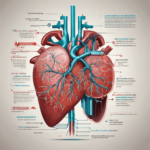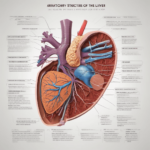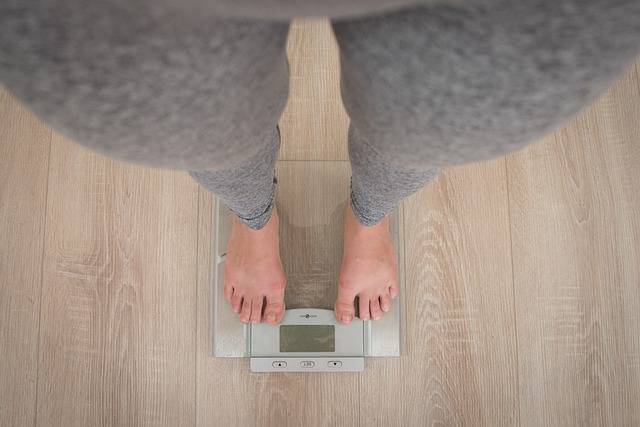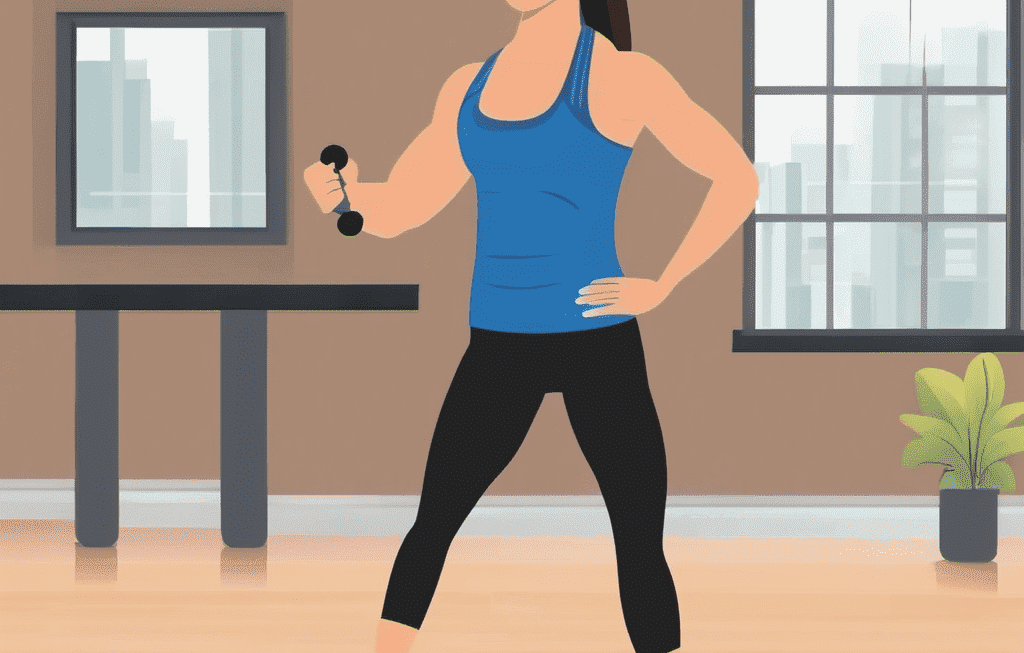Introduction:
Embarking on the path to weight loss can be both exhilarating and bewildering for beginners in the realm of wellness. In a landscape inundated with varied advice, this article serves as a guiding light, offering essential tips tailored for those taking their first steps towards a healthier lifestyle. From setting realistic goals and dispelling common myths to incorporating sustainable dietary changes and effective exercise routines, the piece delves into the fundamentals of successful weight loss. By addressing the psychological aspects and providing actionable advice, it aims to empower individuals to navigate the intricate journey of shedding pounds while cultivating a holistic and enduring commitment to well-being. Whether initiating a weight loss journey for the first time or seeking a fresh perspective, this article aims to equip readers with the knowledge and motivation necessary to embark on a transformative and sustainable path to a healthier life.
Setting Realistic Goals: A Key Element in Weight Loss for Beginners
Embarking on a weight loss journey requires more than sheer determination; it demands a strategic approach, and setting realistic goals is a fundamental aspect often underestimated. Understanding the need for achievable targets is paramount, especially for beginners. Rapid, unsustainable goals can lead to frustration and abandonment of the weight loss efforts. By contrast, establishing both short-term and long-term goals provides a roadmap for success. Short-term goals, such as incorporating more fruits and vegetables into daily meals or committing to regular, manageable exercise, offer immediate victories that keep motivation high. Long-term goals, such as reaching a target weight over several months, provide a broader perspective and a sense of purpose. The importance of this goal-setting process lies in its ability to create a balanced and sustainable approach, ensuring that the weight loss journey is both effective and rewarding for those just starting on the path to a healthier lifestyle.
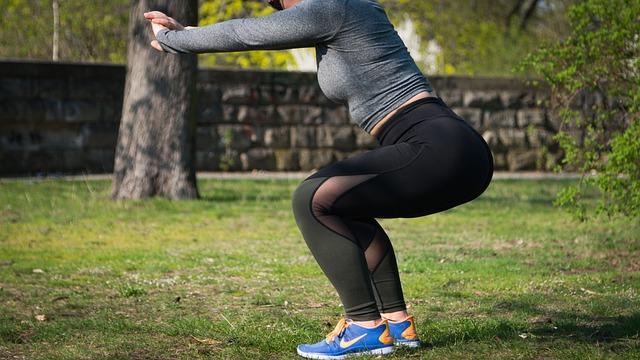
Healthy Eating Habits: A Cornerstone for Weight Loss Beginners
-
- Introduction to a Balanced Diet: One of the foundational pillars of successful weight loss for beginners is the adoption of a balanced diet. A balanced diet encompasses a variety of nutrient-rich foods, including fruits, vegetables, whole grains, lean proteins, and healthy fats. This diversity ensures that the body receives essential vitamins, minerals, and macronutrients necessary for optimal functioning. The significance of a balanced diet is well-documented in numerous studies, including research from the World Health Organization (WHO) and the American Heart Association (AHA), which highlight its role in weight management and overall health.
- Portion Control and Mindful Eating: Beyond the content of meals, portion control and mindful eating play crucial roles in weight loss success. Studies, such as those published in the American Journal of Clinical Nutrition, emphasize the impact of portion sizes on caloric intake. Practicing mindful eating, which involves paying attention to hunger and fullness cues, has been linked to healthier eating habits and weight management, as noted in research from the journal Eating Behaviors. These habits promote a conscious relationship with food, preventing overeating and fostering a sustainable approach to weight loss for beginners.
Also Check:
Regular Exercise Routine: Catalyst for Weight Loss Success in Beginners
The Significance of Incorporating Exercise: Establishing a regular exercise routine is a cornerstone for weight loss success among beginners. Exercise not only contributes to burning calories but also enhances overall health and well-being. Scientific evidence, such as studies published in the Journal of Obesity and the American College of Sports Medicine, underscores the positive impact of regular physical activity on weight management. Beyond its role in calorie expenditure, exercise supports muscle development, boosts metabolism, and contributes to the maintenance of a healthy body composition, making it an indispensable component of any weight loss journey.
Types of Exercises Suitable for Beginners:
-
- Walking: An accessible and low-impact exercise, walking provides an excellent starting point for beginners. Research from the American Heart Association attests to the cardiovascular benefits of walking for weight management and overall health.
- Cycling: Whether on a stationary bike or outdoors, cycling is a beginner-friendly exercise that promotes calorie burn and improves cardiovascular fitness. Studies in the International Journal of Obesity highlight its efficacy in weight loss programs.
- Bodyweight Exercises: Incorporating bodyweight exercises such as squats, lunges, and push-ups helps build strength and endurance. The Journal of Strength and Conditioning Research supports the effectiveness of bodyweight exercises in improving body composition.
- Yoga: Combining physical activity with mindfulness, yoga offers a holistic approach to fitness. Research published in the Journal of Physical Activity and Health suggests that yoga can contribute to weight loss and improved mental well-being.
- Swimming: For those seeking a low-impact, full-body workout, swimming is an excellent option. Studies in the British Journal of Sports Medicine highlight its effectiveness in weight management.
In summary, the significance of incorporating exercise into a weight loss journey cannot be overstated. The types of exercises suitable for beginners encompass a range of options, each supported by scientific research attesting to their effectiveness. By embracing a regular exercise routine that aligns with individual preferences and fitness levels, beginners can not only achieve weight loss goals but also cultivate a sustainable and enjoyable approach to maintaining a healthy lifestyle.
Hydration Importance: A Crucial Element in the Weight Loss Journey for Beginners
The Role of Water in Weight Loss: Amidst the myriad of weight loss strategies, the importance of hydration often takes a backseat, yet it plays a pivotal role in the success of beginners on their weight loss journey. Water is not just a life-sustaining element; it acts as a natural appetite suppressant and metabolism booster. Studies published in the Journal of Clinical Endocrinology and Metabolism and the American Journal of Clinical Nutrition have shown that adequate water intake can enhance the body’s ability to burn calories, aiding in weight loss efforts.
Tips for Staying Adequately Hydrated:
-
- Set a Daily Goal: Establish a daily water intake goal based on individual needs, considering factors like age, weight, and physical activity level. A common recommendation is to aim for at least eight 8-ounce glasses of water per day, but individual requirements may vary.
- Drink Water Before Meals: Consuming a glass of water before meals can promote a feeling of fullness, potentially reducing the overall caloric intake during a meal. This simple habit aligns with research from the Obesity journal, suggesting its positive impact on weight management.
- Use Hydration Apps: Leverage technology to track and remind yourself to drink water regularly. Several hydration apps are available that can help beginners stay on top of their water intake goals.
- Infuse with Flavor: For those who find plain water unappealing, infuse it with natural flavors by adding slices of citrus fruits, berries, or herbs. This can make hydration more enjoyable without the added sugars found in many flavored beverages.
- Monitor Urine Color: A simple and effective indicator of hydration status is urine color. Light yellow or pale straw color suggests adequate hydration, while dark yellow may indicate the need for more water.
Recognizing the role of water in weight loss is vital for beginners aiming to adopt a holistic approach to their wellness journey. By incorporating these practical tips for staying adequately hydrated, individuals can enhance their weight loss efforts, support overall health, and lay the groundwork for sustainable lifestyle changes.
Quality Sleep: A Cornerstone for Weight Loss Success in Beginners
How Sleep Affects Weight Loss: In the pursuit of weight loss, one often underappreciated factor is the quality of sleep. Scientific studies, such as those published in the Annals of Internal Medicine and the American Journal of Clinical Nutrition, underscore the profound impact of sleep on weight management. Insufficient or poor-quality sleep disrupts hormonal balance, increasing hunger hormones like ghrelin while decreasing leptin, the hormone responsible for signaling fullness. This hormonal imbalance can lead to increased cravings, overeating, and ultimately hinder weight loss efforts. Recognizing the symbiotic relationship between sleep and weight, especially for beginners, is crucial for fostering a holistic approach to well-being.
Tips for Improving Sleep Quality:
-
- Establish a Consistent Sleep Schedule: Going to bed and waking up at the same time every day helps regulate the body’s internal clock, promoting better sleep quality. This recommendation aligns with insights from sleep experts, including those found in Matthew Walker’s book, Why We Sleep.
- Create a Relaxing Bedtime Routine: Engage in calming activities before bedtime, such as reading a book or practicing gentle stretches. Establishing a pre-sleep routine helps signal to the body that it’s time to wind down, as suggested in The Sleep Solution, written by W. Chris Winter, MD.
- Optimize Sleep Environment: Ensure the bedroom is conducive to quality sleep by keeping it dark, quiet, and cool. Investing in a comfortable mattress and pillows contributes to a more restful night’s sleep, an idea explored in The Sleep Revolution by Arianna Huffington.
- Limit Screen Time Before Bed: Exposure to screens emitting blue light can disrupt the production of the sleep hormone melatonin. Aim to reduce screen time at least an hour before bedtime, as recommended in the book The Circadian Code by Satchin Panda.
- Watch Diet and Caffeine Intake: Avoid heavy meals and excessive caffeine close to bedtime. Both can interfere with sleep quality, a principle supported by various sleep hygiene guidelines, including those recommended by sleep researcher Matthew Walker.
In summary, recognizing the integral role of quality sleep in weight loss is paramount for beginners on their wellness journey. By implementing these practical tips, individuals can not only improve their sleep quality but also enhance their overall well-being and maximize the effectiveness of their weight loss efforts.
Monitoring Progress: A Crucial Element for Weight Loss Success in Beginners
Importance of Tracking Progress:
As beginners embark on their weight loss journey, monitoring progress emerges as a critical aspect that goes beyond mere numbers on a scale. Regularly tracking progress serves as a motivational tool, providing tangible evidence of achievements, both big and small. Scientifically, studies published in the Journal of Obesity and the International Journal of Behavioral Nutrition and Physical Activity emphasize the positive correlation between consistent progress tracking and successful weight loss maintenance. By keeping a watchful eye on achievements, beginners can stay motivated, adjust strategies as needed, and celebrate milestones along the path to a healthier lifestyle.
Tools and Methods for Monitoring Weight Loss:
Scale Measurements:
While the scale is a common tool for tracking weight loss, it’s essential to use it judiciously. Weighing oneself regularly, such as once a week, provides a numerical indicator of progress. However, it’s crucial to understand that fluctuations are normal and not solely indicative of fat loss. Tools like digital scales with body composition analysis can offer a more comprehensive view.
Body Measurements: Tracking changes in body measurements, such as waist circumference, hip circumference, and body fat percentage, provides a more comprehensive picture of physical transformation. Measuring tape and body fat calipers are accessible tools for beginners to gauge these changes.
Photo Diary: Visual documentation through progress photos can be a powerful motivator. By capturing images at regular intervals, beginners can visually assess changes that may not be immediately apparent in day-to-day life.
Journaling: Keeping a food and exercise journal allows beginners to reflect on daily habits and identify patterns that may contribute to or hinder weight loss. This method, explored in detail in the book The Beck Diet Solution, authored by Judith S. Beck, emphasizes the psychological aspects of weight loss and behavior change.
Mobile Apps: Numerous mobile apps offer a convenient way to track dietary intake, exercise routines, and overall progress. Apps like MyFitnessPal and Lose It! are popular choices among beginners for their user-friendly interfaces and comprehensive tracking features.
The importance of monitoring progress cannot be overstated for beginners navigating the complexities of weight loss. Utilizing a combination of tools and methods allows individuals to gain a multifaceted understanding of their journey, empowering them to make informed decisions and maintain momentum towards achieving their weight loss goals.
Building a Support System:
A critical facet of weight loss success for beginners is the establishment of a supportive environment. The impact of a positive support system extends far beyond mere encouragement; it serves as a cornerstone for motivation and resilience in the face of challenges. Whether embarking on this journey alone or with others, seeking guidance from friends, family, or professionals plays a pivotal role. Sharing goals with a support network not only enhances accountability but also provides a valuable source of advice and encouragement. Whether it’s swapping healthy recipes, finding a workout buddy, or consulting with a nutritionist, the collective strength of a supportive environment significantly contributes to the success of weight loss endeavors. Recognizing the importance of building these connections can make the weight loss journey not only more manageable but also more fulfilling for beginners.
Refrences:
Benefits of recruiting participants with friends and increasing social support for weight loss and maintenance by Wing, R. R., & Jeffery, R. W. (1999) in the Journal of Consulting and Clinical Psychology, 67(1), 132-138.
Autonomy support, self-regulation, and weight loss by Gorin, A. A., Powers, T. A., Koestner, R., Wing, R. R., & Raynor, H. A. (2014) in Health Psychology, 33(4), 332-339.
Health-e-call, a smartphone-assisted behavioral obesity treatment: Pilot study by Thomas, J. G., & Wing, R. R. (2019) in JMIR mHealth and uHealth, 7(6), e12610.
Some Real Life Examples:
Setting Realistic Goals:
Emily, a beginner on her weight loss journey, set small, achievable goals like walking for 20 minutes each day and gradually incorporating more vegetables into her meals. This realistic approach helped her stay motivated and build a foundation for long-term success.
Healthy Eating Habits:
John, a beginner looking to adopt healthier eating habits, started by replacing sugary snacks with whole fruits and incorporating more lean proteins and vegetables into his meals. This shift not only aided his weight loss but also improved his overall energy levels.
Regular Exercise Routine:
Sarah, a novice to regular exercise, found activities she enjoyed, such as dancing and cycling. By making exercise enjoyable, she established a consistent routine that contributed to her weight loss and enhanced her overall well-being.
Hydration Importance:
Michael, a beginner focused on hydration, started carrying a reusable water bottle and set reminders on his phone to ensure he drank enough water throughout the day. This simple habit not only supported his weight loss but also improved his overall health.
Quality Sleep:
Jessica, recognizing the connection between sleep and weight loss, established a calming bedtime routine and created a comfortable sleep environment. This helped her achieve better sleep quality, contributing to her overall success in losing weight.
Monitoring Progress:
Mark, in his weight loss journey, used a combination of a scale, body measurements, and a photo diary to track his progress. Celebrating each milestone, whether a decrease in weight or a change in body measurements, kept him motivated.
Building a Support System:
Lisa, a beginner, joined a local fitness class and connected with others who shared similar goals. The support and camaraderie from the group not only made exercise more enjoyable but also provided encouragement during challenging times.
These examples illustrate how individuals, as beginners, implemented practical weight loss tips in their real lives, showcasing the diversity of approaches that can lead to success.
Conclusion:
Embarking on a weight loss journey as a beginner requires a combination of dedication, patience, and a holistic approach. By setting realistic goals, adopting healthy habits, and nurturing a supportive environment, beginners can achieve sustainable weight loss. Remember, it’s not just about shedding pounds but embracing a healthier and more balanced lifestyle.
Frequently Asked Questions: FAQS
How quickly can I expect to see results with these tips?
The timeline for seeing results varies for each individual. Consistency is key, and sustainable changes often lead to lasting results.
Are cheat days allowed in a weight loss plan?
Occasional indulgences are acceptable, but moderation is crucial. Plan cheat days mindfully to avoid derailing your progress.
What role does stress play in weight loss?
Stress can affect weight loss by influencing hormones and behaviors. Managing stress through relaxation techniques is beneficial.
Can I follow these tips if I have specific dietary restrictions?
Yes, these tips are adaptable to various dietary preferences and restrictions. Consult with a healthcare professional for personalized advice.
Is it necessary to count calories for effective weight loss?
While calorie counting can be helpful, it’s not the only approach. Focusing on nutrient-dense foods and portion control is equally effective.
how to lose weight fast naturally and permanently ?
To lose weight fast naturally and permanently, focus on a balanced diet, regular exercise, stay hydrated, get enough sleep, and manage stress. Avoid crash diets and adopt sustainable lifestyle changes for long-term success.
How to lose weight in 7 days ?
To lose weight in 7 days create a calorie deficit, drink more water, reduce sodium intake, and exercise. However, sustainable weight loss usually takes more time, and it’s crucial to consult a healthcare professional before making drastic changes.
What should beginners do to lose weight?
To-do list for weight loss for beginners:
Adopt a balanced diet.
Control portion sizes.
Engage in regular exercise (e.g., brisk walking).
Stay hydrated.
Prioritize adequate sleep.
Make gradual, sustainable changes.
Consider consulting a healthcare professional or nutritionist for personalized guidance.
Target a weekly weight loss of 1 to 2 pounds (0.5 to 1 kilogram).
What is the first thing to do to start losing weight?
Begin with a balanced diet, control portions, and incorporate regular exercise.
How can I lose weight in 7 days naturally?
Create a calorie deficit, drink more water, reduce sodium intake, and exercise regularly.
What is the first rule of losing weight?
Maintain a calorie deficit by consuming fewer calories than you burn through diet and exercise.
How to reduce belly fat?
Focus on a combination of abdominal exercises, overall cardio, and a healthy diet to reduce belly fat.
What foods burn fat?
Include foods like lean proteins, whole grains, fruits, and vegetables, known for their metabolism-boosting properties.
How to burn fat?
Burn fat through regular exercise, especially cardio, and a balanced diet with a calorie deficit.
Do eggs burn fat?
Yes, eggs can contribute to fat burning as they are a good source of protein, which helps boost metabolism and reduce overall calorie intake.

